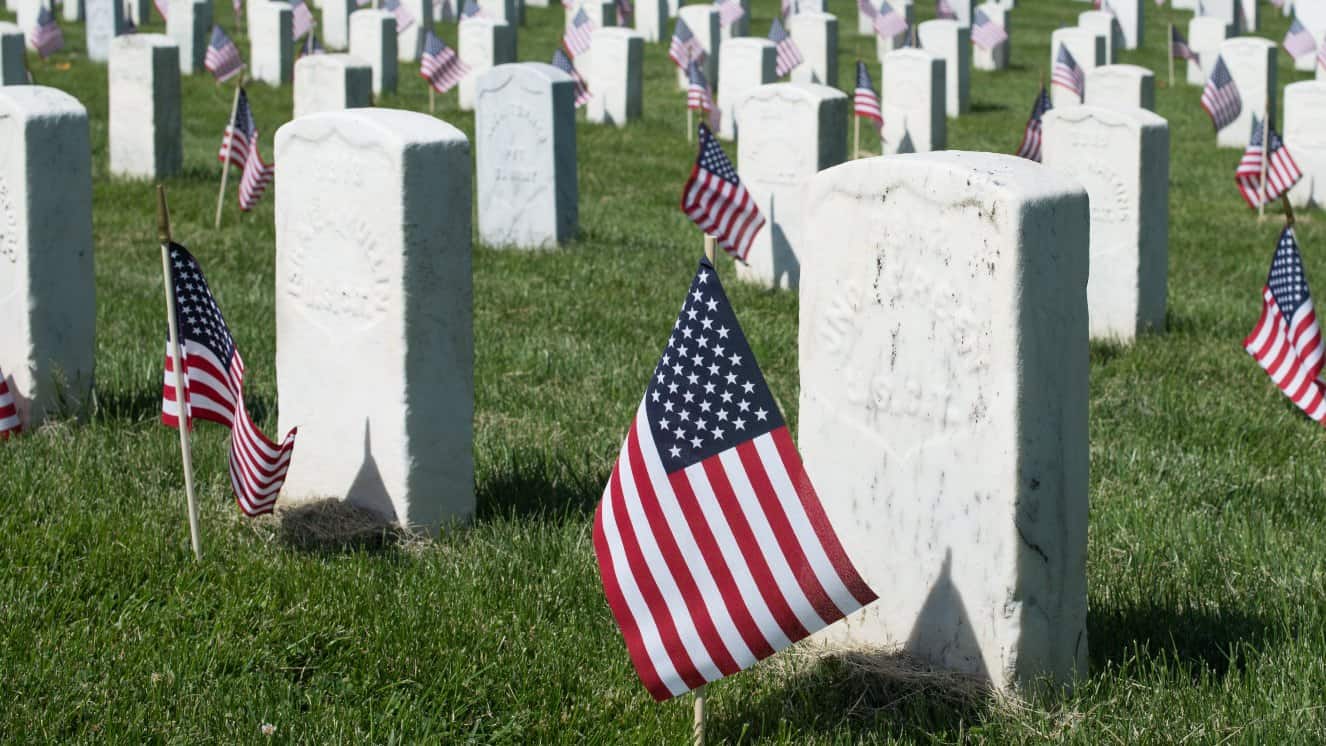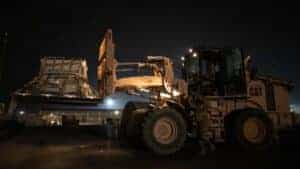Military members work hard and put in a lot of effort to protect the people. In return, the Department of Veterans Affairs makes sure to honor all the sacrifices they’ve made in serving their country. One of the ways they show honor and respect is through VA burial benefits.
Veterans who fill out a VA burial benefits form can choose to be buried in a private cemetery or a VA national cemetery, and the VA will help to ease the costs.
Suggested read: Recognizing the Month of the Military Child
Who Is Eligible for VA Burial Benefits?
VA burial benefits are available to Veterans, their spouses, and other dependent children. Even if the spouse and dependents were to pass before the Veteran, they are still able to be buried according to the benefits allotted by the VA.
There are certain qualifications on who’s eligible for Veteran spouse burial benefits, as well as dependent children who may also qualify.
Veterans who were discharged from active duty not under dishonorable conditions, and service members who died during active duty can receive VA burial benefits. Eligible individuals who have committed state capital crimes or federal crimes will not be buried in a VA national cemetery.
People not eligible for the Veteran burial assistance in a national cemetery are:
- Former spouses.
- Former family members.
- Those who died during inactive training.
- People with dishonorable discharges.
Eligibility will still be verified by the VA’s National Cemetery Scheduling Office or local national cemetery directors. Two ways to determine eligibility are a death certificate or having some proof of relationship to the Veteran.
VA Benefits Fact Sheet
There are over 100 national cemeteries, and burials here for qualified individuals are often free of charge.
If an individual were to choose to have their memorial service at a VA national cemetery, then it would include:
- A burial.
- An opening and closing of the gravesite.
- A grave liner.
- An inscribed headstone or marker.
- A burial flag.
- A presidential memorial certificate.
- Constant care of the gravesite.
If an individual chooses to have their Veteran burial memorial service at a private cemetery, then it would include:
- A headstone, marker, or medallion.
- A burial flag.
- A presidential certificate.
Spouses and dependents are not able to get benefits if buried in a private cemetery.
Others may even choose cremation. Their remains can be buried or inurned at a national cemetery. Additionally, this would include the same honors as those buried in a casket.
What Does the VA Pay for When a Veteran Dies?
The VA gives burial allowances as reimbursements for Veteran funeral and burial costs. Those available include:
- Veterans who paid for another’s burial.
- Vets who have not been reimbursed.
- Veterans discharged under certain conditions (not dishonorable).
Additionally, one of these requirements must be met:
- Died from a service-related disability.
- Died under the authorization and expense of the VA.
- Received a pension or compensation at the time of their death.
- Was entitled to receiving pension or compensation.
- Died under the care of the VA.
- Died on or after October 9, 1996, in a VA-approved nursing home.
Family members of those who died during service on or after September 11, 2001, will get a maximum of $2,000 for their burial and $1,500 if they died before September 11, 2001. Furthermore, those buried in a VA national cemetery will be reimbursed for some of the cost of transporting the body.
For those who did not die during service and passed on or after October 1, 2019, the family will receive a maximum of $796 for their funeral and burial expenses if they were hospitalized by the VA during their death.
If they were not hospitalized by the VA during their death, the family will receive $300 for burial and funeral expenses. For those not buried in a national cemetery, the family will receive an allowance of $796 for plot interment.
The family of those who did not die during service and passed before October 1, 2019, or after December 1, 2001, will receive $300 for burial and funeral expenses and an allowance of $300 for plot interment.
For those who died on or after April 1, 1988, or before October 1, 2011, the family will receive $300 for burial services.
*NOTE: Veteran burial benefits vary based on personal factors and state residence.
2023 VA Veterans Burial Benefits Expansion
The VA updated its burial benefits for Vets, families, survivors, and caregivers on September 22, 2023. This includes the following benefits:
- Expanded transportation cost benefits. This includes moving remains to eligible national cemeteries, along with state and Tribal Veteran cemeteries.
- A higher single payment rate for benefits for a non-service-connected burial.
- The VA increased the plot or interment allowance for Tribal organizations.
Service-connected burials don’t have a time limit for submitting for VA burial benefits to use for the plot interment allowance or transportation benefit.
However, you must file within two years of the Vet’s burial or cremation for non-service-connected burial benefits.
How to Apply for VA Burial Benefits
Families looking to apply for VA burial benefits can do so at any time. Here are a few steps to help anyone get started putting their loved one to rest properly:
Prepare Ahead of Time When Possible
While gravesites in VA national cemeteries can’t be reserved in advance, families should still discuss cemetery options beforehand.
However, they should also find the Veteran’s military information and discharge papers.
Fill Out the VA Burial Benefits Form
Veterans and eligible family members may apply and determine their eligibility at any time. They may apply online by filling out a VA form for burial benefits or fill out a VA burial benefits application on paper. (VA Form 21P-530EZ).
For further questions, they can call the VA burial benefits phone number at 1 (800) 827-1000 Monday through Friday from 8:00 a.m. to 9:00 p.m. ET.
Suggested read: Veteran Resume Tips: How to List Your Veteran Status
How Long Does It Take to Get VA Burial Benefits?
The amount of time it takes to receive a Veteran burial benefit will vary and can be shortened by preparing ahead of time. With that being said, as of this writing, the VA is reporting a high number of pre-need eligibility applications. Expect delays.
How to Get a Burial Flag for a Veteran
Families get a Veteran burial flag for free for their deceased loved one to go with a casket or urn.
Typically, the next-of-kin is provided the American flag following the service; however, friends and families may gift it elsewhere as needed.
You can apply for a flag through VA Form 27-2008, Application for United States Flag for Burial Purposes, and receive it at any U.S. Post Office or VA regional office.
However, your funeral director can usually iron out these details and are an important resource during this time.
The VA burial benefits form also provides the proper displaying technique. Furthermore, because of the materials used to create the burial flag, it’s not suitable for display outside.
Updated by Buddy Blouin 3/26/2024
Read more: 8 Great Military Retirement Benefits to Get Your Post-Military Life Started Right






